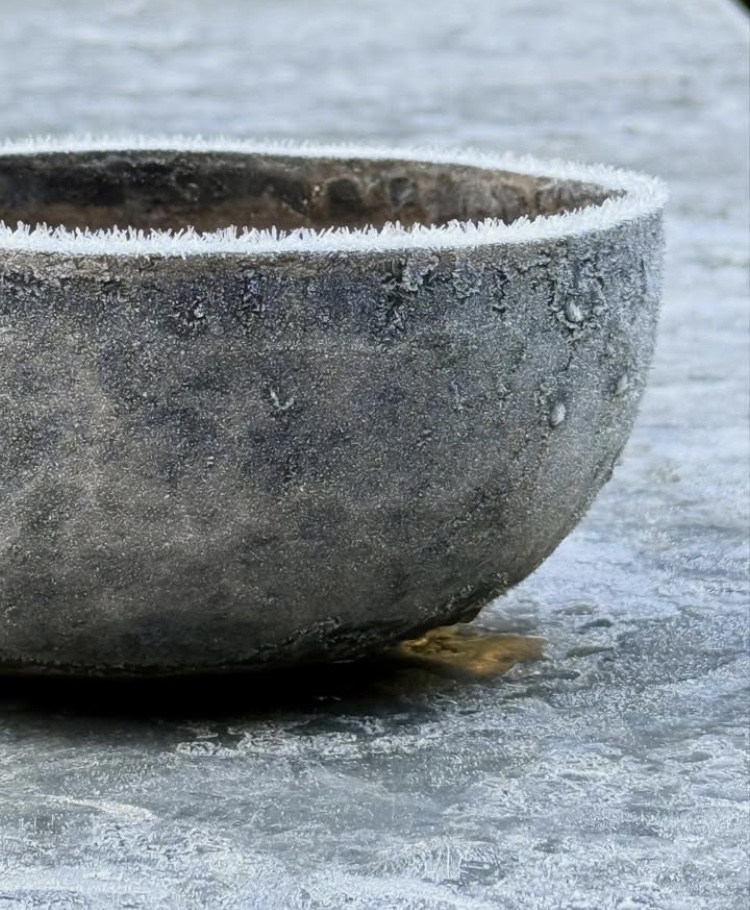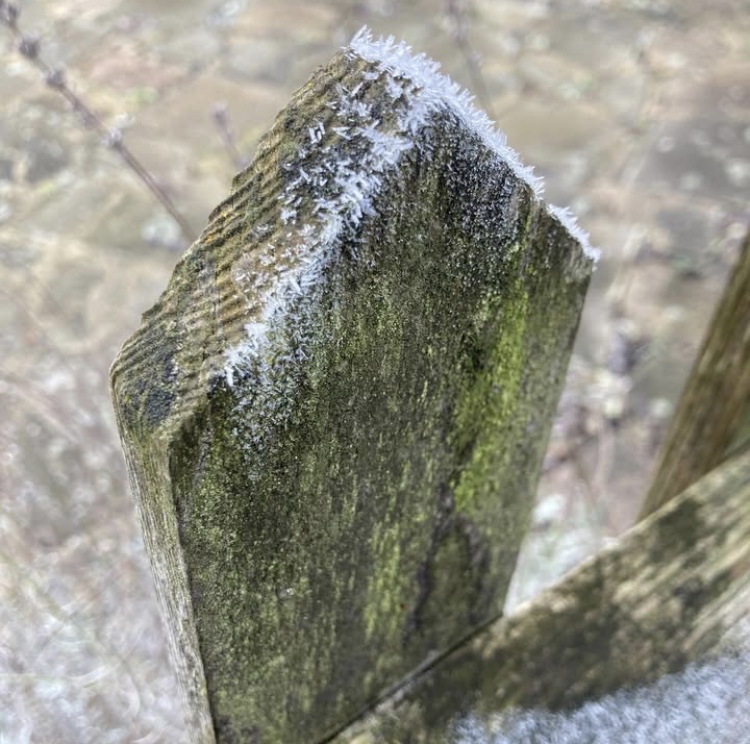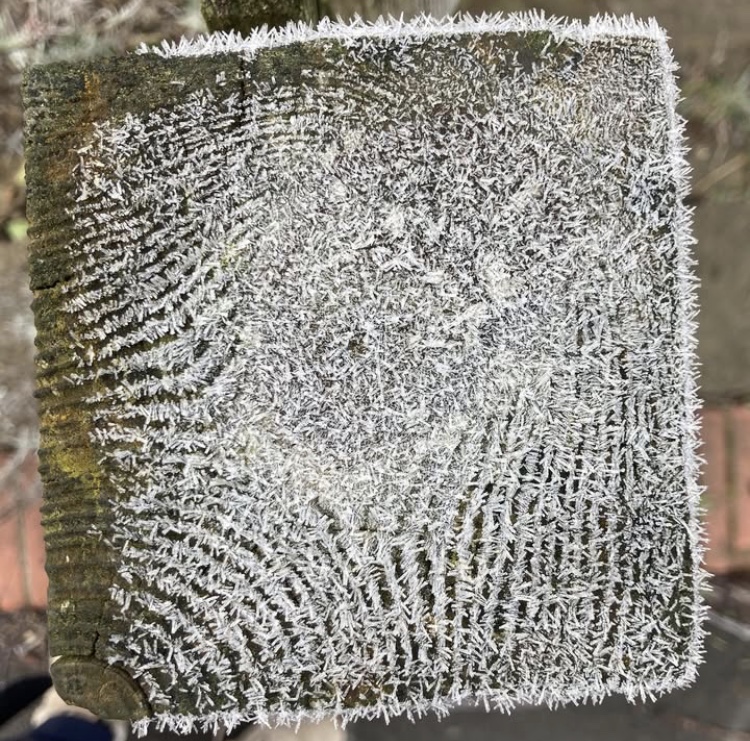
With the second inauguration of Donald Trump, it feels like we’re approaching the edge of uncertainty again.
Unexpected surprises for friends and foes. Daily dramas that are impossible to ignore. Chaos that frustrates every objective, including worthy ones. In other words, a precipice.
Among other things, it’s caused me to look at “my internal regulating mechanisms” in the hope that I’ll do a better job of “smoothing out” my reactions to the coming ruckus than I did the last time around.
More distance and dispassion. Resisting the next shock’s claim on my attention.
Between the election and today, that’s meant considering the moment that we’re in and how it feels to be thrown off the axis of what’s “reasonably foreseeable” once again (my post: “An Unnatural Calm Between One Storm and Another”). It’s meant reaffirming basic principles, like the responsibilities that are born of our interconnections (“An Ethic of Reciprocity”) and daily work that builds our resilience when we take one practical step after another (“A Place That Looks Death in the Face, and Keeps Living”). I’ve begun to write an upcoming post that considers the crisis facing Boys and Men in America and what we can do about it: a kind of book-end to my look last October at a key voting block that helped determine this election in swing states like mine. In other words, I was also thinking about problems I might help to solve.
I’ve also spent two of my post-election posts considering the edges of the precipice that we’re on (our seeming to get stupider individually and weaker as a country), when not avoiding its proximity altogether (by surveying year-end favorite songs, music videos and television).
I suppose I’ve been making a kind of pre-emptive strike against the confusion and alarm to come.
Today I wanted to confront Trump’s “attention grabbing” itself, to challenge his claims on my time and ability to throw me off balance.
For me, that involves admitting that we’re not all wired the same, and that some of us need to be more proactive “to keep our triggers in check.” It’s why I quoted historian and culture critic Robert D. Kaplan last week, on the relatively few Americans who pay enough attention to the daily news to get roiled by it, and how far greater numbers pay it little mind, beyond expecting “the government to keep them safe and hunt down and kill anyone who threatens their safety…Inside these extremes, don’t bother them with details.”
On the other hand, those like me–who are unsettled by events like nominating unqualified people to run our defense and intelligence establishments–need to have reliable ways to step back from the next and the next and the next controversy.
As I was reminded in an op-ed this week, the unsettling relationship between “my need to know what’s going on” and “keeping up with the news cycle” overwhelms my attention and becomes even more exhausting with a “disrupter in chief” as president. But the op-ed’s author, a host on a cable news network, argues that it’s not just Trump or even the sad state of our politics that’s to blame. It’s the undigestible assault “of all the other bad news too” that we need to step back from if the susceptible among us want to maintain a sense of balance (in the present) and agency (for the future).
In other words, it’s about more than surviving Trump 2.0.

I don’t get my news from the cable networks, so I’ve neither watched nor followed Chris Hayes, who helms a show on MSNBC. But with more than a little interest, I read his recent op-ed in the Times called: “I Want Your Attention. I Need Your Attention. This is How I Mastered My Own.” [The link is pay-wall free.]
Hayes has recently written a book about our attention dilemma, so he seemed to have done his homework when it comes to summarizing “how we feel” when our attention is manipulated and overloaded in an unending cycle of manipulation and overload. This is how he describes “the attention capitalism we are enmeshed in” today, including “the news”:
Our attention is a wildly valuable resource, and some of the world’s most powerful corporations extract it at scale in increasingly sophisticated ways, leaving us feeling like bystanders to our minds. You might say we’ve built a machine for producing boredom and then entertainment to fill it in an endlessly accelerating and desperate cycle.
Hayes seems exactly right when he describes how we feel when we’re caught up in this boredom-to-entertainment cycle: “like bystanders to our minds.” That’s me when news purveyors drown me in whatever I’m likely to keep watching or reading about out of fear or dread. I’ve become a bystander in the show that somebody else has colonized in my mind!
Hayes has a dozen ways of describing how we are continuously “occupied” like this, a whole lexicon for how we’re made to feel bored so somebody who stands to profit can provide momentary relief from that boredom, which (of course) is when the cycle starts all over again. Indeed, given the consistently outrageous “content” that Trump reliably provides, Hayes wonders: “Did Americans elect him again because they were just kind of bored with the status quo,” and can count on him to relieve it over and over again?
Perhaps because Hayes studied philosophy in college, he finds an even deeper dilemma in our compulsively cycling between boredom, entertainment and back again. He calls it “the unsettled self.”
The restlessness and unease of our times aren’t simply, in my experience, the vertigo of distraction and distractibility. No, that experience is itself a symptom caused by some deeper part of the unsettled self. The endless diversion offered to us in every instant we are within reach of our phones means we never have to do the difficult work of figuring out how to live with our own minds.
As Hayes reminds us, it’s Pascal’s description of an existentially uncomfortable man sitting in a room with only himself as company—“the unoccupied mind” as a “feral beast” that needs to be fed and seems to want to consume him because he’s not enough on his own.
It’s at this point that he mentions the cure for this universal human discomfort: not seeking more and more distraction, but instead, learning how to calm “our itchy minds.” Hayes cites Jenny O’Dell’s book “How to Do Nothing” for “a plan of action” that includes a “lateral movement outward to things and people that are around us” and a “movement downward into place.” He also mentions times when he was younger that he achieved this heathier mental state, talking about his “daydreaming, reverie, mind wandering, [and being] lost in thought,” as well as how he’s more recently:
developed a set of routines, habits and hobbies that can provide the framework for a form of modified idleness, just enough to focus on to keep myself rooted and present while allowing my mind to wander. Chopping wood, making handmade pasta, going to the dog park with my canine-obsessed 6-year-old — these are all in the happy but endangered category of things to do that are neither work nor looking at my phone.
They allow him to reclaim at least some of the space in his mind for his own purposes.
In these regards, Hayes’ debt to O’Dell seemed obvious. I first posted here about her “How to Do Nothing” in 2021, referred to her revelatory proposals again during a rough patch the following year, and explored her thinking at greater length after her most recent book (“Saving Time”) was published in 2023. Here’s some of what I said about her approach to the attention dilemma at the time:
Against the harshness that presses down and calls out for some relief, Odell would recommend letting the mind (and heart) rest in what she calls an ‘almost psychedelic encounter’ with something close at hand but still unfamiliar, because of how far towards recovery reclaiming our attention and re-focusing [on realities that are deeper than our distrations] can take us.
She’s saying: I don’t need to be overwhelmed or pinned down by these rushes of cold reality. I can find refreshment in the simple act of paying attention to something around me that usually escapes it.
On the eve of what will likely be four tumultuous years, it might help to conclude with a couple of additions to Haye’s “plan of action” in light of O’Dell’s much needed insights.

Jenny O’Dell sees herself more as an artist and teacher (her first two jobs) than as an expert about anything. In light of that, instead of prescribing to us in either of her books, she makes “suggestions given what she sees and how she lives…a kind of observational witnessing”—which is my slant on her contributions as a writer.
What O’Dell does to clear and open her mind is to visit “third places” around her home in California, places where she doesn’t have to be productive or to buy anything, where she can simply observe, notice and immerse herself in what’s around her. Anchored in a place that makes no demands, she employs her sensory observations almost like springboards to make “illustrative discursions.” They’re associations that provide sparks or clues about her place in the world and how to enrich it when she eventually gets back to work.
These free associations are akin to the “mind-wanderings” that Hayes says he enables when he’s chopping wood, is making pasta or on those direction-less ambles when he was just starting out in his twenties. As he wrote in his op-ed:
Almost without exception, my best thinking happened on these walks. I would come back to my laptop, sometimes almost racing up the steps to my apartment, to get the thoughts [that had bubbled up when I was out there] down.
(Interestingly, “The Overstory” author Richard Powers makes almost identical observations about the creative aftermaths of his off-line walks in the old growth forests of the Smokies.)
When Issac Newton was hit by the apocryphal apple in the course of “day-dreaming” under that famous tree, he changed his future and ours with the theories that his mind was freed to ponder. Whether for Newton, Hayes or O’Dell, it is the undemanding place or leisure activity that tethers you enough so you can free up space in your mind, escape destructive cycles, and find healthier and more satisfying ways forward. Or as O’Dell notes:
only there can we locate hope and desire—wishes for things to be different, new things to happen, the ability to change.
It can break the cycle of boredom and diversion, giving us the chance to reclaim our attention.
It can scratch the itch of our always restless minds.
It can “save our time” for what truly matters.
It can provide ways to get through the next 4 years with fuller, richer lives.
I just need to keep remembering how easy this can be.
+ + +
The photographs above are care of @robertdawsonaestheticsabotage and @nigelslater.
This post was adapted from my January 19, 2025 newsletter. Newsletters are delivered to subscribers’ in-boxes every Sunday morning, and sometimes I post the content from one of them here. You can subscribe by leaving your email address in the column to the right.
Leave a Reply